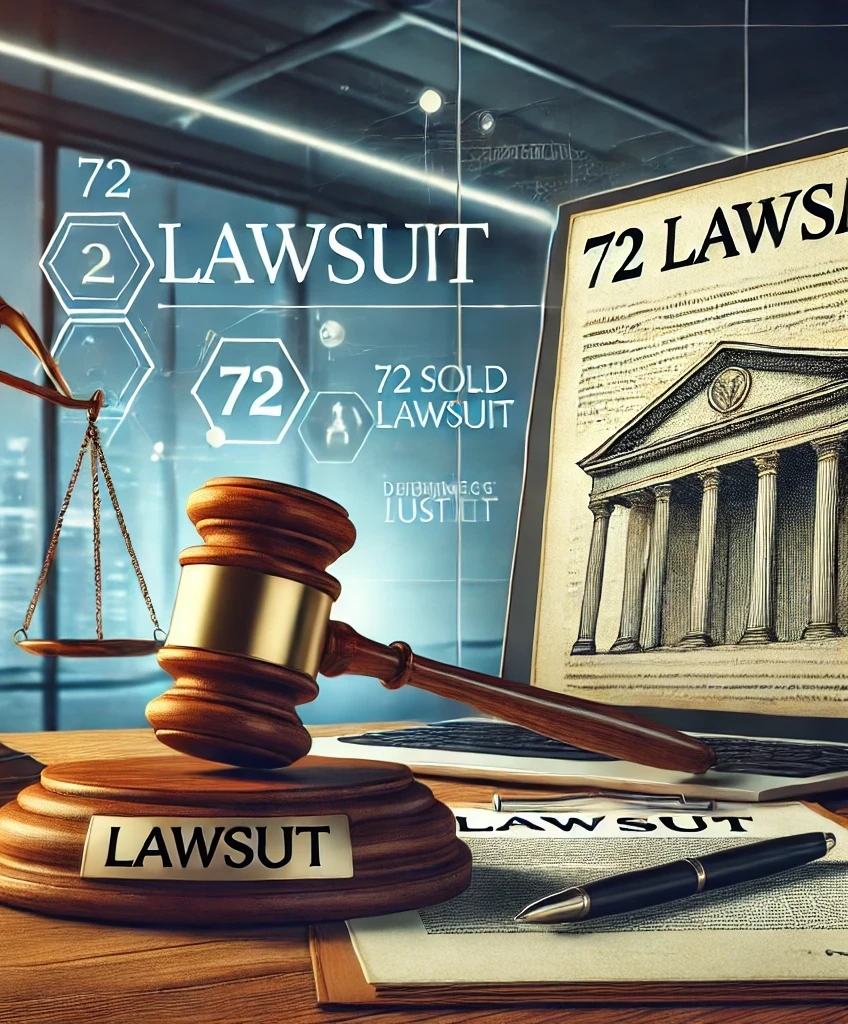Introduction
The 72 Sold lawsuit has been a hot topic in the real estate industry recently, sparking curiosity and concern among homeowners, agents, and investors. 72 Sold is known for its unique approach to selling homes quickly. However, legal issues can cause confusion for anyone involved. In this article, we will discuss the lawsuit’s key aspects, clarify any misconceptions, and explain how it may impact sellers and buyers.
Let’s dive into a simple, clear breakdown of the 72 Sold lawsuit and why it matters.
What is 72 Sold?
Before getting into the legal details, it’s essential to understand what 72 Sold does.
72 Sold is a real estate program that claims to sell homes faster and for higher prices compared to traditional methods. Founded by Greg Hague, 72 Sold focuses on an innovative approach to home selling, which eliminates long listing periods.
Homeowners are attracted to this system for its speed, which often bypasses many traditional hurdles like extended showings and price negotiations. However, alongside success came challenges – leading to the 72 Sold lawsuit that is under public scrutiny.
Understanding the 72 Sold Lawsuit
The 72 Sold lawsuit refers to ongoing legal allegations or disputes involving the 72 Sold program. While many sellers and real estate agents have praised the service, others have raised concerns or misunderstandings, resulting in legal issues.
At its core, the lawsuit often centers on:
- Claims About Real Estate Practices
- Transparency Issues in Contracts
- Unfulfilled Promises or Expectations
It’s important to note that lawsuits are not uncommon for successful businesses. However, this situation highlights the need for homeowners to fully understand contracts before signing up for programs like 72 Sold.
What Led to the 72 Sold Lawsuit?

The causes behind the 72 Sold lawsuit include differing perspectives on business practices, transparency, and real estate regulations. Here are a few contributing factors:
- Consumer Complaints: Some sellers felt their experience differed from initial promises made in marketing campaigns. Discrepancies in expectations versus results can fuel misunderstandings.
- Competitor Allegations: The success of 72 Sold naturally created competition. At times, competitors may raise legal concerns to question the legitimacy of new real estate methods.
- Miscommunication Over Contracts: Some clients allegedly misunderstood key clauses in contracts. This has prompted legal action to clarify obligations and practices.
It’s worth noting that in any lawsuit, there are two sides. Some of these claims are proven valid, while others may arise from a lack of understanding.
Is the 72 Sold Lawsuit Legitimate?
For readers wondering if the 72 Sold lawsuit is legitimate, it is crucial to rely on facts rather than speculation. Lawsuits are a common occurrence for companies that introduce innovative methods in their industries.
While critics may claim faults, many homeowners still report positive experiences with 72 Sold’s quick selling process.
A fair evaluation would consider:
- The Evidence Presented – Is there substantial proof supporting the allegations?
- The Court’s Verdict – Legal systems often evaluate facts before reaching conclusions.
- Public Response – How do current customers feel about their experience with 72 Sold?
How Does the Lawsuit Impact Homeowners?
The 72 Sold lawsuit raises questions for homeowners considering this service. Here are some key points to think about:
- Clarity on Expectations: The lawsuit highlights the need for sellers to read all contracts carefully before proceeding. Ensure you fully understand the terms and promises of the program.
- Reputation Concerns: Legal issues can impact the public perception of a company. It is important to check for updates and customer reviews when deciding on a service.
- Opportunity vs. Risk: For some sellers, 72 Sold’s process may remain an excellent choice, while others may feel unsure after hearing about the lawsuit.
If you are unsure, seeking advice from a real estate professional can help. Remember, lawsuits do not always mean a service is bad – but they are a signal for buyers to perform careful research.
What to Consider Before Using 72 Sold
If you are still curious about 72 Sold and wondering how to proceed in light of the 72 Sold lawsuit, here are key tips:
- Do Your Research: Read all contracts, reviews, and consult reputable real estate professionals. Understanding how 72 Sold works will help avoid surprises.
- Ask Questions: If any term or promise seems unclear, ask questions upfront. Clarity can help prevent misunderstandings that lead to disputes.
- Monitor Updates: Lawsuits evolve over time. Keep an eye on the case’s progress and look for official updates from 72 Sold.
- Weigh Pros and Cons: While 72 Sold offers speed and convenience, traditional methods may suit some homeowners better. Analyze your needs before making a decision.
By taking these steps, homeowners can make informed choices, regardless of ongoing legal issues.
Public Opinions on the 72 Sold Lawsuit
Public reactions to the 72 Sold lawsuit have been mixed. While some clients continue to praise the program for its efficiency, others remain skeptical. Here are a few perspectives:
- Positive Feedback: Many sellers share success stories about how 72 Sold helped them close deals quickly and at competitive prices.
- Criticism: Some complaints focus on unmet expectations or misunderstandings surrounding the program’s methods and promises.
It’s important to approach such situations objectively and look at verified testimonials or case outcomes. This can provide a clearer picture of the real impact of the 72 Sold lawsuit.
Final Thoughts on the 72 Sold Lawsuit
The 72 Sold lawsuit has undoubtedly raised questions in the real estate community. However, like any legal case, there are multiple sides to consider. For homeowners seeking fast property sales, 72 Sold may still provide a unique solution.
To make an informed decision:
- Research the Program Thoroughly
- Stay Updated on Legal Outcomes
- Seek Guidance from Real Estate Experts
By staying informed, you can assess whether 72 Sold aligns with your home-selling goals despite the legal buzz surrounding it.
Conclusion
The 72 Sold lawsuit highlights the importance of transparency, clarity, and research when navigating real estate programs. Lawsuits don’t necessarily mean a company lacks value, but they do encourage consumers to proceed carefully.
If you are considering 72 Sold or similar programs, take time to understand their methods, ask questions, and ensure their approach aligns with your expectations. An informed homeowner is a confident homeowner.
Whether the lawsuit impacts the company in the long run remains to be seen, but 72 Sold’s approach continues to interest thousands across the country.
Stay tuned for updates and ensure you make decisions that work best for you!


